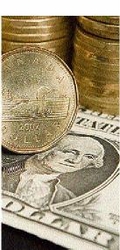Commentary - Savers' dilemma
Published: Friday | May 29, 2009

Wilberne Persaud, Financial Gleaner Columnist
Last week, among my 'Spam' messages there was one that appeared to be a genuine request for assistance - assistance in a field in which I am not qualified to practice.
The writer wanted to know the best stocks for a first time investor, and how to watch the market to make the best picks.
He wrote: " ... I have 300,000 ja dollar and i want to invest some of it somewhere and watch my money grow, is it best to try the stock market or try something else. waiting to hear from you."
I must ask the writer to pardon my use of his words. I want to emphasise that this is apparently an ordinary, perhaps typical young Jamaican male seeking his way in life.
I wrote back advising that I was not qualified to give advice on these matters, nor am I licenced to do so. But if I were talking to my son I would tell him that if he did not have a great idea for an innovative design of something that J$300,000 - approximately US$3,300 would create - that for the time being it would be best to put that in a United States (US) dollar ordinary savings account; you would be very well off once the government's exchange rate policy continues as it is. And continue building up that cash nest egg.
Why do I answer this request and share the correspondence in a column? Because the writer shows an earnestness, a genuine drive and desire to survive and prosper; to do this with hard work and sacrifice.
He is to be highly commended. I think or rather, I am sure there are a large number of Jamaicans in this same position.
There was a time when with our burgeoning financial-services sector, people trusted the words of our financial innovators and entrepreneurs.
Recall the unit trusts, initial public offerings such as with Ciboney Group, purchase of new insurance products and other forms of financial asset holdings that ruled for at least a decade until the meltdown in mid-1996.
The people who put their trust in these operations were all let down - mind you government saved most of them.
For those who got into stocks it was different. Someone actually told me he was keeping his Ciboney share certificate framed as a souvenir, a reminder of what could have been.
Get-rich-quick euphoria
We have not yet fully recovered from the impact of that get-rich-quick euphoria, even though, one would have thought its result would immunise us from the fantastic almost magical 10 per cent per month returns of those 'alternative investment schemes' now deceased.
Jamaica must find mechanisms to meet the requirements of those in my reader's position.
To the extent that he saves, sends home his US dollars, converts and holds the small nest egg in Jamaican dollars; to the extent that devaluations destroy his value even as he tries to build an asset for his future, to that extent we destroy the future potential of Jamaica's prosperity.
But how do we implement what may be required to defend a stable exchange rate and avoid the ruinous impacts of inflation - one of the preconditions for creating such mechanisms?
The only way of doing this is by creating genuine surpluses from governmental operations including revenue generation. And this is not a purely economic question.
How does government get the population 'fired up and ready to go' if everyday experience teaches that at journey's end the rainbow indeed becomes an illusion? Government's considerable expenditure must be made more efficient. So-called social programmes need to be recognised for what they are - essential to proper functioning of the economy and investing in the true resource of the country: its people.
Corruption in general
Cost overruns and waste, granting of contracts as favours, corruption in general, whether involving gully cleaning or white collar operations, involving government or private sector, would have to be eliminated.
Is this possible, particularly now in a time of worldwide recession? US President Barack Obama feels a crisis is too great an opportunity to waste. Does this hold for us?

EDITOR'S NOTE: In Wilberne's column last week, errors were imported into two paragraphs: The corrected version follows:
So under stress of attempts to deal with pressing social and economic issues the people clamoured for as they elected Michael Manley with a transformative mandate, the economy was almost immediately further hit by the 1973 oil crisis.
It is settled understanding that a good bit of Jamaica's inflationary impulses are imported.
Attempts to immunise the population from these stresses while implementing much needed social programmes, all in a period of perilous foreign exchange shortage sent us into the hands of an International Monetary Fund still in Cold War mode of privatisation and devaluation - the Washington Consensus.
wilbe65@yahoo.com


















